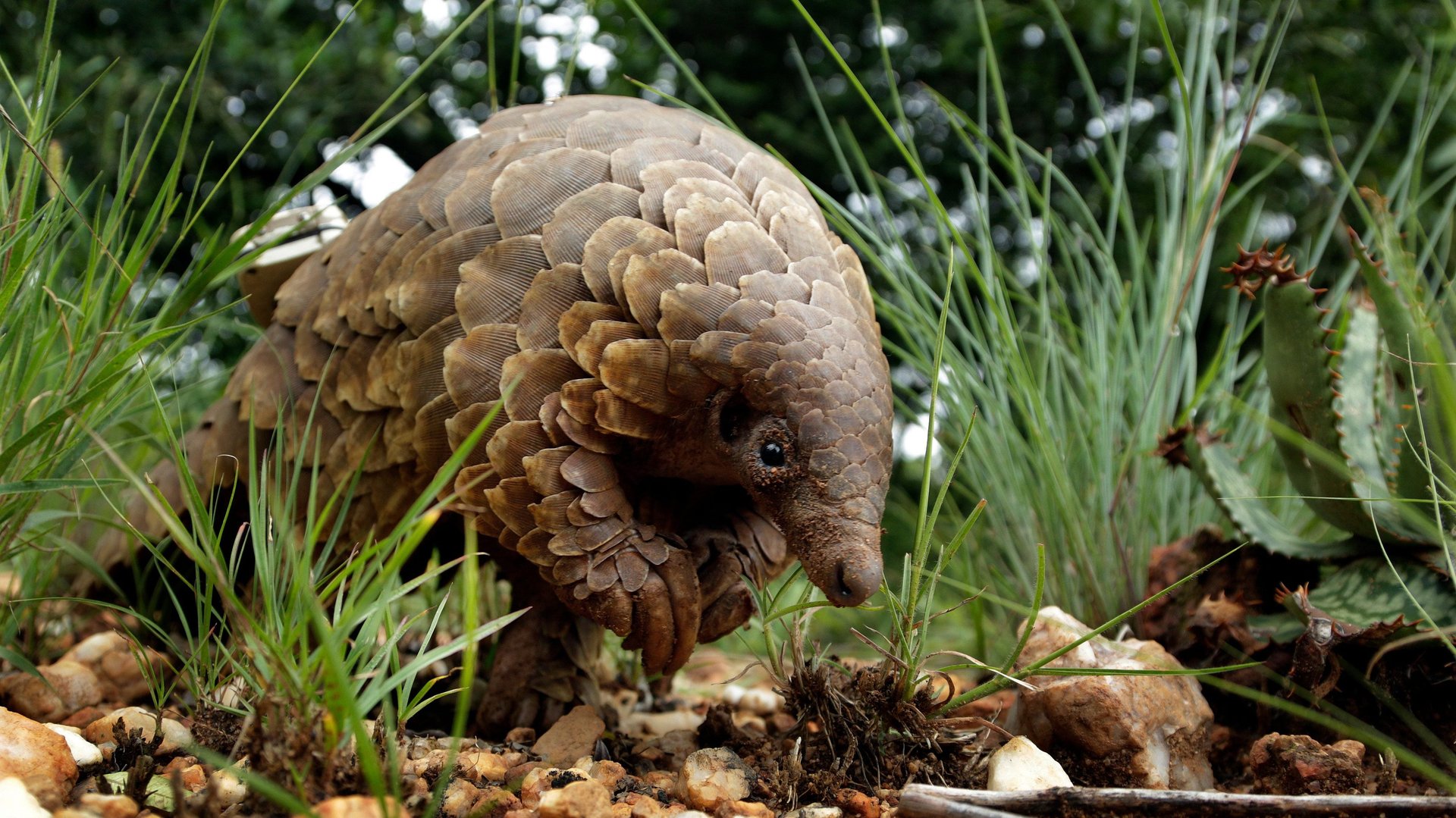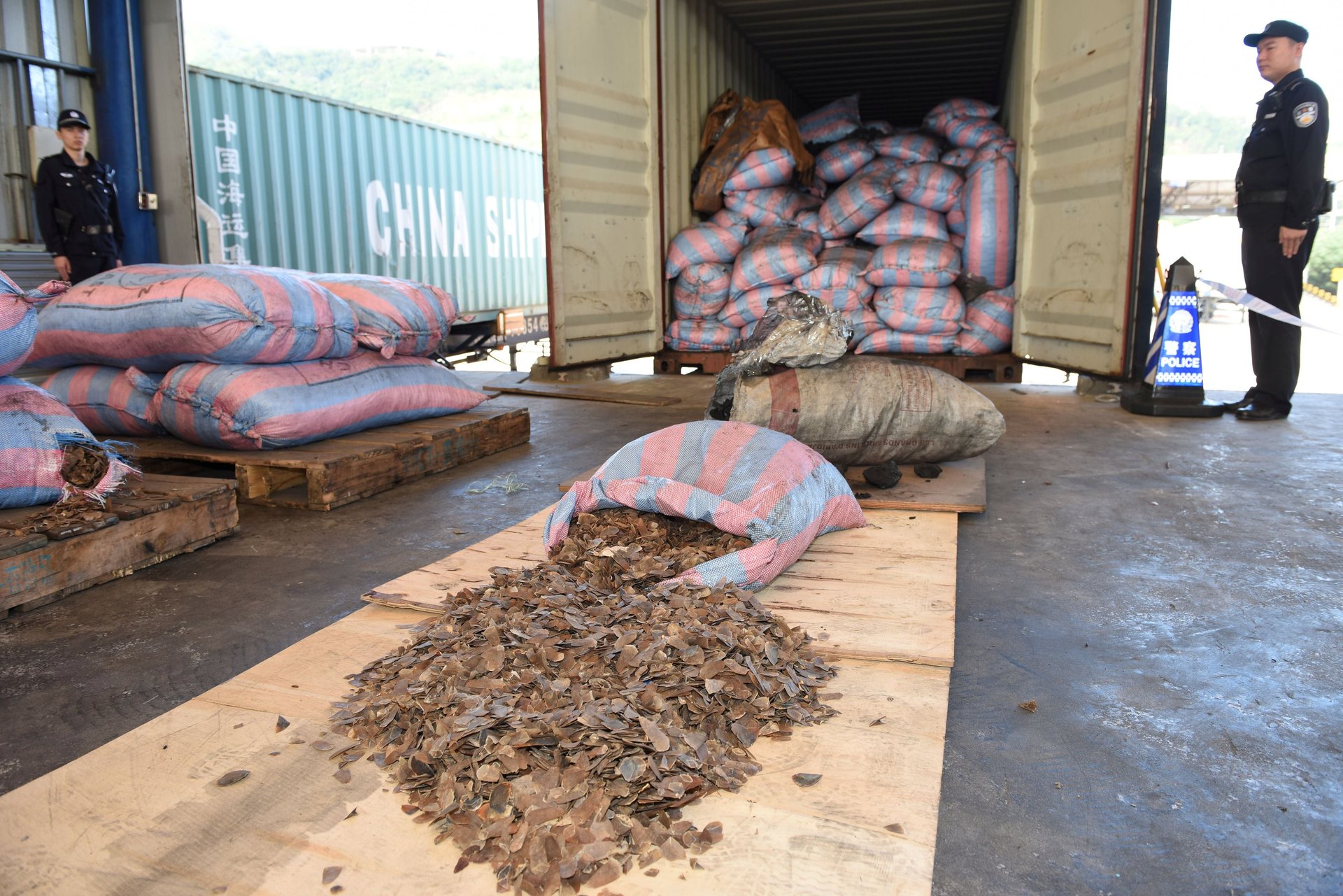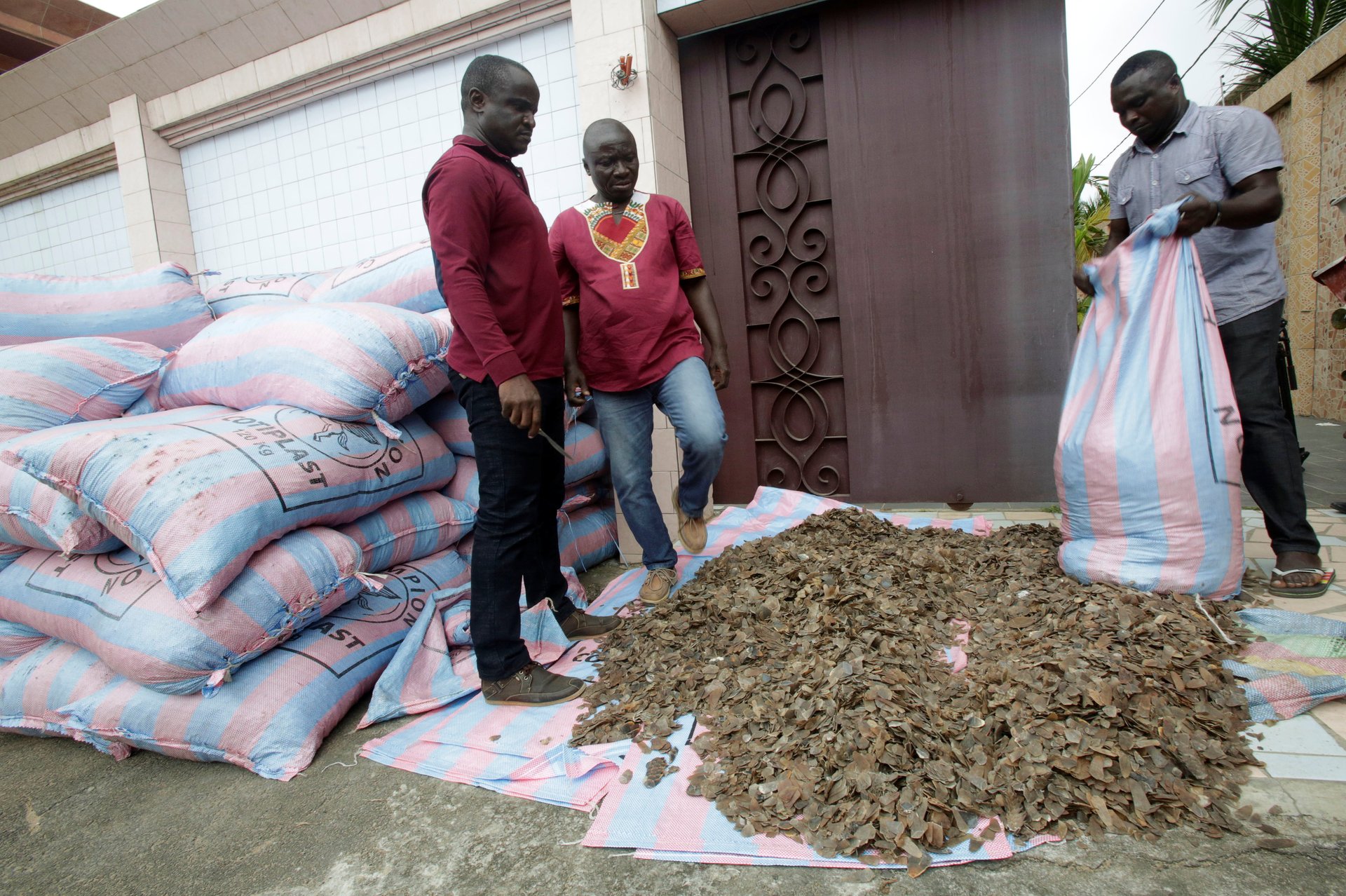The African pangolin’s future is bleak as Asian demand and local corruption drives up poaching
The news that over 7,500 kilograms of pangolin scales have been seized in the last five years in Cameroon has again brought to light the devastating reach of international poaching and trafficking in Africa. Even more shocking, this month, was the seizure in Vietnam of 2,500 kg of pangolin scales in just one consignment from Nigeria, which the federal government has decided to investigate.


The news that over 7,500 kilograms of pangolin scales have been seized in the last five years in Cameroon has again brought to light the devastating reach of international poaching and trafficking in Africa. Even more shocking, this month, was the seizure in Vietnam of 2,500 kg of pangolin scales in just one consignment from Nigeria, which the federal government has decided to investigate.
More than 20,000 kg of pangolins and their parts, mostly from Africa, are trafficked internationally every year, says Traffic, a biodiversity conservation and sustainable development NGO focused on wildlife trade. In Central Africa, it’s estimated 400,000 to three million pangolins are killed every year. While there has been much global awareness and furor around the hunting of elephants and rhinos for ivory, it is pangolins who top the global chart of mammals exposed to poaching.
The high rate of poaching and the huge volume of scales trafficked poses a serious menace to Africa’s pangolin population. Conservationists say even the least endangered species wouldn’t be able to withstand this level of overexploitation.

There four African pangolin species: white-bellied, black-bellied, giant ground and Temminck’ ground. The Convention on International Trade in Endangered Species of Wild Fauna and Flora (CITES)—to which Nigeria, Cameroon and other African countries are party—prohibits the commercialization of the scaly mammal. Yet, trafficking in pangolins continues to thrive especially in hotspots of Nigeria (a trafficking hub) and Cameroon.
In the past, most people hunted pangolins in Africa as a local delicacy “bush meat” as it is known colloquially in Nigeria and Cameroon. But the pangolin scales were often discarded. Then things changed in the early 2000’s when an illicit global market for pangolins and their scales opened up. And in recent times, the poaching of African pangolins has become much more sophisticated with the involvement of Chinese and other Asian poachers.
As Asian pangolin species became scarce, poachers from Asia turned to Africa to make up for the deficit in order to supply international markets extending to the United States. China is the chief consumer of pangolins, where wealthy Chinese enjoy savoring their meat in restaurants. The Chinese also believe pangolin scales have medicinal values which can cure many ailments, including different types of cancers and erectile dysfunction.

Locals are getting away with pangolin poaching because the species hasn’t attracted a lot of conservation efforts and law enforcement,says Eric Kaba Tah, deputy director of Last Great Ape Organisation in Cameroon (LAGA). “The traffickers see it as low profile and more profitable as it does not attract a lot of attention like elephant tusk.”
Corruption has also been identified as the key issue breeding African pangolin poaching, thwarting little anti-poaching efforts. Pangolin poachers in DR Congo, Gabon, Congo and Central African Republic prefer transiting their booty through Cameroon, then across the porous border to Nigeria, which Kaba Taba described as lax in wildlife law enforcement.
LAGA has documented bribing attempts in 85% of field arrest operations, and 80% of all court cases within the legal system. Since the organization started in 2013 to assist the Cameroonian authorities to track down pangolin poachers, only 65 out of hundreds have been arrested.
Sign up to the Quartz Africa Weekly Brief here for news and analysis on African business, tech and innovation in your inbox